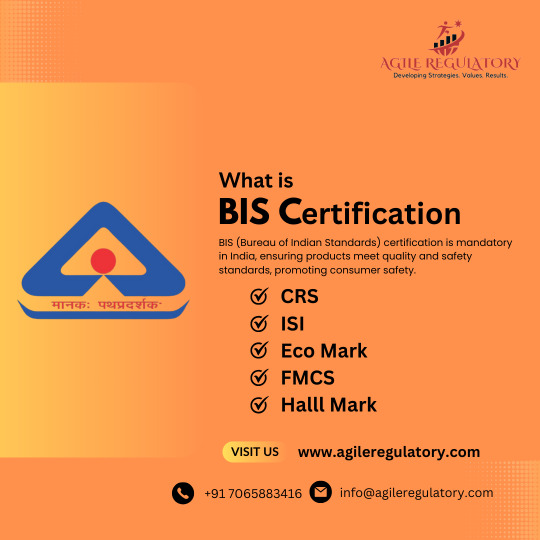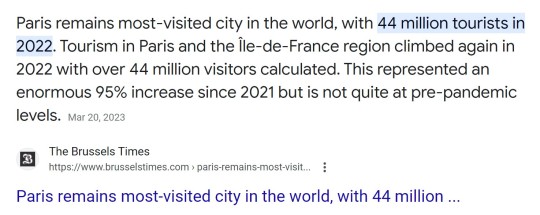#Food import license in India
Text

Easy Application & Registration | Fssai Food License
Fssai food license consultant Will help you in obtaining your Food License in India and its Enrollment Process. It is required for a Food Business Operator.
#EquinoxLabs#CommitmentToSafety#BIScertification#FoodManufacturing#Fssaiupdates#Fssailicense#FoodHandlers#FoodSafety#SafeFood#FoodTesting#worldfoodsafety#foodindustry#foodsecurity#foodquality#fssairegistration#horeca#foodbusinesses#Food license#Food license registration#Food license in India#Food import license in India#Food export license in India#Food manufacturing license in India#Food supplement license in India#Food license in Ahmedabad#Food license in Mumbai#Food license in Gujarat#Food license in Surat#Food License in Vadodara#Food license in Chennai
1 note
·
View note
Text
Easy Application & Registration | Fssai Food License

Fssai food license consultant Will help you in obtaining your Food License in India and its Enrollment Process. It is required for a Food Business Operator. Read more.....
#EquinoxLabs#CommitmentToSafety#BIScertification#FoodManufacturing#Fssaiupdates#Fssailicense#FoodHandlers#FoodSafety#SafeFood#FoodTesting#worldfoodsafety#foodindustry#foodsecurity#foodquality#fssairegistration#horeca#foodbusinesses#Food license#Food license registration#Food license in India#Food import license in India#Food export license in India#Food manufacturing license in India#Food supplement license in India#Food license in Ahmedabad#Food license in Mumbai#Food license in Gujarat#Food license in Surat#Food License in Vadodara#Food license in Chennai
0 notes
Text

Easy Application & Registration | Fssai Food License
#foodbusinesses#Food license#Food license registration#Food license in India#Food import license in India#Food export license in India#Food manufacturing license in India#Food supplement license in India#Food license in Ahmedabad#Food license in Mumbai#Food license in Gujarat#Food license in Surat#Food License in Vadodara#Food license in Chennai#Food license in Maharashtra#Food license in Jaipur#Food license in Karnataka#Food license in Bangalore#Food license in Bihar#Food license in Hyderabad#Food license consultant in India#Food license near me
0 notes
Text
Unraveling the Importance of FSSAI License in the Food Industry
Introduction: In the bustling world of culinary delights, where flavors mingle and aromas dance, lies a critical cornerstone often overlooked by many – the FSSAI license. While food enthusiasts indulge in the sensory experiences offered by diverse cuisines, it's imperative to acknowledge the pivotal role played by regulatory bodies in ensuring food safety and quality standards. Among these, the Food Safety and Standards Authority of India (FSSAI) stands as a beacon, safeguarding public health and fostering consumer trust. Let's delve deeper into the significance of the FSSAI license in the food industry.
Ensuring Food Safety: At the heart of FSSAI's mission lies the assurance of food safety. The FSSAI license acts as a testament to a food business's compliance with stringent safety regulations, encompassing aspects like hygiene, sanitation, packaging, and labeling. By adhering to these standards, businesses mitigate the risks associated with foodborne illnesses and uphold the integrity of their products.
Legal Compliance and Accountability: Obtaining an FSSAI license isn't merely a formality but a legal obligation for food businesses operating in India. Whether it's a small-scale eatery or a large food processing unit, every entity involved in food production, distribution, or sale must acquire the requisite license. This not only fosters accountability but also instills confidence among consumers regarding the legitimacy of the products they consume.
Consumer Trust and Brand Reputation: In an era where consumer choices are shaped by concerns about health and wellness, holding an FSSAI license serves as a badge of credibility for food businesses. It signifies a commitment to quality and safety, thereby bolstering consumer trust. Moreover, a robust compliance framework enhances brand reputation, positioning the business as a responsible player in the industry and paving the way for long-term success.
Market Access and Expansion Opportunities: The FSSAI license isn't just a regulatory hurdle but also a gateway to broader market access and expansion opportunities. Many retail chains, e-commerce platforms, and export markets mandate FSSAI compliance as a prerequisite for product listing or export clearance. By securing the license, businesses unlock avenues for growth, both domestically and internationally, tapping into new markets and diversifying revenue streams.
Facilitating Innovation and Industry Growth: While regulatory compliance may seem burdensome at times, it also fosters a culture of innovation and continuous improvement within the food industry. By setting clear standards and guidelines, FSSAI encourages businesses to invest in research and development, adopt best practices, and explore novel technologies. This, in turn, fuels industry growth, spurring innovation in food production, packaging, and distribution.
2 notes
·
View notes
Text

BIS (Bureau of Indian Standards) certification is a mandatory quality and safety certification process in India that ensures products conform to specific standards and regulations set by the BIS. This certification is designed to guarantee that various products, ranging from electronics and appliances to industrial goods and food products, meet the established quality, performance, and reliability requirements. Manufacturers are required to obtain a BIS license, adhere to BIS standards, and label their products with the BIS mark, signifying compliance. BIS certification plays a critical role in consumer protection, product safety, and the promotion of quality standards within the Indian market, both for domestically manufactured and imported goods.
https://www.agileregulatory.com/service/bis-certification
#bis certification#bis certification for electronic products#bis hallmark certificate#bis certification list#bis registration#hallmark#fmcs#bisfmcs#bisforeignmanufacturer#bishallmark#isimark#Bisconsultant#bislicense#biscrs#bisisimark#bisforimport#biscertificationforimport
2 notes
·
View notes
Text













PILIPINAS - 'FORCING - HEAT' - OUR - VOLCANIC -
MOISTURE - WEATHER - LIKE - 175 - DEGREES FL -
HEAT - SHORT - BURSTS - OF - STRESS EXAMPLE -
INTERMITTENT - FASTING
ONCE - PER - DAY - 12P - UNTIL - 6P
WHEN - U - EAT - NOT - WHAT - YOU - EAT
START - 12P - AS - MUCH - AS - U - CAN - 2
18 HRS - OF - FASTING - REMOVAL - OF -
POISON - FR - OUR - BODIES - TOXINS -
REMOVED - ANOTHER - STRESS - THE -
HEAT - SPENDING - TIME - IN - SAUNA -
I'M - MADE - A - DECISION - GOING - 2B -
ALSO - AN - ARCHITECT - AS - WE - ARE -
GBC - FILM - TV - STUDIOS
TAKESHI - FILM - TV - STUDIOS
PLACES - THAT - NEED - BUILT MY PART
ALSO - AS - LICENSE - ARCHITECT - BUT
PARIS - FRANCE - CITY OVER - 2,000 -
YEARS OLD - MAKATI - EST - 67,000 -
YEARS - WE'RE - GOING - BACK - IN -
TIME - JOSEON - OVER - 125 YRS - AGO -
GOREA - OVER - 1,000 YRS - OLD - YES -
THE - ARCHITECT - OF - THEIR HOUSES -
PALACES - BUT - HISTORICALLY - MORE -
ACCURATE - PARIS - FRANCE - SEWERS -
MOST - AUTHENTIC CLOTHES - LIKE -
THE - POOR - 500 YEARS - INFERIOR -
COTTON - TAKING - HISTORICAL - FASHION -
UNIVERSITY - OF - PARIS - AS - WE - CREATE -
JOSEON - AND - GOREO - HISTORICAL - AND -
CORRECT - OUTFITS - SO - WILL - BECOME -
ARCHITECT - AFTER - ALL - THANKS - 2 YES -
BEIJING - CHINA - OLD - MALE - DOCTORS -
ACUPUNCTURE - 2 - MAKE - ME - LINGUAL -
200 LANGUAGES - OF - INDIA
MANY - OTHER - LANGUAGES
RETENTION - CAN - HANDLE - SNOW - SO -
ZUMA CUM LAUDE
WITH - SPEECH
ARCHITECTURE
FREE - FR - MIAMI - HOOKERS - LESBIANS -
VIOLENT SHOOTERS - FR PUBLIC SCHOOLS -
NC - TAXES - QUARTERLY
$0 - $0 - $0 - $0
ST JUDE's - CHILDREN's - RESEARCH
HOSPITALS - MY GOAL - $100 BILLION
MY - PERSONAL - REFERENCES
BRICKEL - CITY - CENTRE
PSYCHO - BUNNY DAY B 4
EASTER - SUNDAY
HARD - LIQUOUR - SABBATH
HISPANIC - WOMEN DRUNKS
MIAMI - FLORIDA - FL




WHAT - IS - COV-ID 19 - CORONAVIRUS -
RESPIRATORY - COLDS - COUGH - HIGH -
FEVER - SOLUTION - OF - SORE - THROUGHT
AND - COUGH - HOT - SHOWERS - AMERICAN
ADAGE - FEED - A - COLD - STARVE A - FEVER
SOLUTION - 2 - CORONAVIRUS
PHILIPPINE - WEATHER - HEAT
INTENSE - VOLCANIC - WITH - MOISTURE
WHEN - WINDS - BLOW - HEATED - ALSO
BEACH - NATIN - LIKE - JACUZZI
SHOCK - BODY - GIVE - STRESS - HOW -
INTERMITTENT - FASTING
ONCE - A DAY - STARTS - AT - 12P
EATING - FR - 12P - TO - 6P DAILY
THEN - 18 HRS - BODY - CAN - RELEASE
POISON - TOXINS - BODY - GETTING OUT
DANGEROUS - SUBSTANCE - FR WRONG
FOODS - ESPECIALLY - U - WILL - POOP
IT - WILL - HAPPEN
ANOTHER - WAY - 2 - STRESS - BODY
SAUNA - INTENSE - HEAT - WE - ARE
AS - ARCHITECTS - DESIGNING - ALL
OUR - PLACES - 2 - HAVE - SAUNA
STOPS - AGING - JUST - LIKE - YES
SNOW - AREAS - STRESSORS - UNDER
COLD - PLUNGING
ASHEVILLE - NORTH CAROLINA - LIKE
MIAMI - LOWS - OF - 27 DEGREES BOTH
SAME - BUT - ASHEVILLE - SNOW AND
LEGENDARY - BEAUTIFUL - MOUNTAINS
SAUNA - STOPS - HEART - PROBLEMS
IMPORTANT - THAT - SWEAT
PILIPINAS - NATURAL - SWEAT
CHARLIE SHEEN - WAS - IN - THE - SHADE
LESS - THAN - 1 HOUR - LOST - 25 LBS - FR
JUST - STANDING - IN A - SHADE - MANILA
AFTER - SAUNA - WHAT - WE - ALSO - HAVE
COCONUT - JUICE
WITH - OR - WITHOUT - PULP
SOPHISTICATED - COCONUT - WATER
THAILAND - WITH - BABY - PULP - BUT
WHILE - EXERCISING - WITHOUT PULP
AFTER - EXERCISE - WITH - PULP
B 4 - EXERCISE - WHAT - PILIPINAS
HAS - COCONUT - JUICE - OR - WATER
WITHOUT - PULP - SO - CORONAVIRUS
WE - HAVE - THE - SOLUTION
VOLCANIC - MOISTURE - WEATHER OF
PILIPINAS - LOTS - OF - SWEAT - BUT
DURING - AND - AFTER - OR - BEFORE
COCONUT - JUICE - WITHOUT - PULP
AFTER - WITH - PULP
COV-ID 19 - OUR - WEATHER - AND -
COCONUTS - THE - SOLUTION BUT -
WHAT - DID - OTHERS - ADD - 2 - US -
WE - HAVE - DEATHS - ALSO -
6 FT - SOCIAL - DISTANCING -
THAT - WAS - WHAT - WE - JUST -
LEARNED - THAT's - IT
SO - BAHAY - KUBO - MUST - HAVE -
ALSO - SAUNA - SO - WE - STAY YES -
INDOORS - 4 - THE - POOR - GO OUT -
THERE - SO - WHEN - EVERYONE -
TOLD - U 2 - STAY - INDOORS - IN -
AIR CONDITIONING - AND - AC - ALSO -
PRODUCES - ASTHMA - HARD - 2 - YES -
BREATHE
STAYING - INDOORS - AS - PILIPINAS -
WAS - THE - WORST - ORDER - FOR A -
SAUNA - WAS - THE - SOLUTION AND -
AS - RICH - ALL - KIDS - HAVE - THEIR -
OWN - BATHROOM - 4 - THOSE - WITH -
COV-ID 19 - MUST - HAVE - THEIR OWN -
DAHIL - CONTAGEOUS
SO - DURING - WORLD - PANDEMIC -
6 FT - SOCIAL - DISTANCING - YES -
BUT - REMAINING - OUTDOORS - 2 -
SWEAT - FR - INTENSE - VOLCANIC -
HEAT - DRINKING - COCONUT JUICE -
WITHOUT PULP - THEN - AFTER -
WITH - PULP - WAS - SOLUTION -
CORONAVIRUS - UNDER BIBLE -
'LEADERS - INSTEAD - OF - FOLLOWERS -
OF - NATIONS' - LARGE - POPULATIONS -
USA - OVER - 333 MILLION - THEIR YES -
DEATHS - OVER - 1 MILLION
BRICKELL - CITY - CENTRE - SAID
'YOU'RE - NOT - ALLOWED - 2 TAKE -
SHOWER - IN - THEIR - RESTROOM' -
'PRIVATE - PROPERTY'
WHEN - AMERICANS - WHY - THEY -
DIED OF CORONAVIRUS - BECAUSE -
AS - INDEPENDENT - FR - FAMILIES -
THEY - NEVER - SHOWERED - IN THE -
APTS - THEY - LIVED - IN - ILLEGALLY -
THEY - WENT - 2 - WORK - WITHOUT -
SHOWERING - ONLY - EVENTUALLY -
DID - BECAUSE - ITCHINESS - THEN -
THEY - SHOWERED - THAT - IS - WHY -
DIED - OF - COV-ID 19 - THEIR LACK -
OF - SHOWER - SO - THEY - SAID - I -
TOOK - SHOWER - IN - THEIR - RESTROOM -
BLK - MALE - SECURITY - SAID - BECAUSE -
I - BROUGHT - LUGGAGE - AS - PILIPINAS -
THEY - HAVE - TUMI - LUGGAGE - FIRST -
FLOOR - BECAUSE - DIDN'T - BUY - THAT -
I - WAS BANGED - ON - RESTROOM -
DISABLED - BECAUSE - 'PRIVATE -
PROPERTY' - SAID - 9P - CLOSED -
GOOGLE - SEARCH
MALICE - SLANDER - PERJURY -
$750,000 - MAX - FINE - AND OR -
IMPRISONMENT
TACOLOGY
CUBAN - CUISINE
SUSHI
CLOSES - 1A EDT
CMX - FILM - THEATRE - 10:30P - FINAL - SHOW
CASA - TUA - CUCINA - ITALIAN
9:30A - 10:30P - DAILY - THEY'VE
GOT - OWN - RESTROOMS
SO - BRICKELL - CITY - CENTRE
PRAY - DEUT 28 - CURSES - FOR
UNWELCOMING - PHILIPPINES I
ALREADY - SHOOK - DUST FROM
MY - FEET - 2023 - LAST - YEAR
OF - 67,000 - MEDICAL HISTORY
NOW - TOPLESS - DANCERS
TOPLESS - SINGERS
TOPLESS - VEILED - BELLY DANCER
TOPLESS - COCKTAIL - WAITTRESS
WHY LESBIANS - LESBIANS - WARNING
MEN - MARRIED - 2 - MEN - WHY - WHY
GOD - CREATED - US - NAKED - WHEN
WE - WERE - BORN
ADAM - AND - EVE - NAKED - CLOUDS
COVERED - THEIR - BODIES
WATER - CONSERVATION - WHEN
NAKED - BECAUSE - FEMALES - R
MOST - BEAUTIFUL - AS - NAKED
CLOTHES - ALSO - COVERS OUR
BEAUTY - WHILE - WE'RE - YOUNG
AND - BREATHTAKING - ALSO OUR
BODIES - NEED - 2 - BREATHE - SO
BEING - SINGLE - HOLIEST - LIVING
TOPLESS - JOBS - IS - A - RELEASE
FROM - COVERED - BY - EVIL - YES
HUMANS - HARRASSING - AND OR
DEGRADING - FEMALE - RACE - AS
UNITED STATES
TYRANT - OPPRESSIVE
NOT - 'LIFE - LIBERTY - AND PURSUIT
OF - HAPPINESS'
UNITED STATES - AGE 245
'LIES - LIES - LIES'
'LAND - OF - THE - FREE'
'HOME - OF - THE - AMERICAN INDIAN
BRAVE' - TORTURE - ABUSE - LIFE - IN
THE - UNITED STATES - THEY - TRIED 2
SHOOT - ME - AFTER - MY - BIRTHDAY
TODAY - AT - BRICKELL - CITY CENTRE
MIAMI - FLORIDA - FL - EIGHT STREET
DR JOSE RIZAL
MANILA - 3 BOILED EGGS - LAST MEAL
EXECUTED BY SPAIN - RIFFLE - SHOTS
NOT - A - NATIONAL - HERO OF THE
REPUBLIC - OF - THE - PHILIPPINES
2 notes
·
View notes
Text
Free Sale Certification in Bangalore: Ensuring Export Compliance

Free Sale Certification (FSC) plays a vital role in facilitating international trade, enabling businesses to prove that their products are freely sold and legally marketed in their country of origin. In Bangalore, a leading hub for manufacturing, pharmaceuticals, and technology, Free Sale Certification is crucial for businesses looking to expand into international markets. This blog will cover the implementation of Free Sale Certification in Bangalore, the services available to businesses, and the audit process involved in obtaining the certification.
Free Sale Implementation in Bangalore
Free Sale Certification in Bangalore is typically sought by companies in sectors such as pharmaceuticals, medical devices, cosmetics, food products, and consumer goods. The certification confirms that a product is legally sold within India and meets all local regulatory standards, making it easier for companies to export these products to foreign markets.
To implement Free Sale Certification, businesses in Bangalore need to ensure that their products comply with all Indian regulatory and quality standards. This often involves:
Regulatory Compliance: The company must demonstrate that the products they intend to export are legally sold within India and meet relevant regulatory standards. This could involve compliance with the Food Safety and Standards Authority of India (FSSAI) for food products or the Central Drugs Standard Control Organization (CDSCO) for pharmaceuticals and medical devices.
Document Preparation: For a company to receive Free Sale Certification, they must provide a range of documents, including proof of product registration, a manufacturing license, and any necessary approvals from regulatory bodies. This paperwork serves as evidence that the product is legally sold within India.
Product Quality Assurance: Companies must also ensure that the product quality meets both domestic and international standards. For businesses in Bangalore, this often means adhering to ISO certifications such as ISO 9001 for quality management systems or ISO 13485 for medical devices.
By effectively implementing Free Sale Implementation in Bangalore, businesses in Bangalore can streamline their export processes and expand into global markets with greater ease. This is particularly important for businesses looking to export to countries that require proof that the product is freely sold in its country of origin before granting import approval.
Free Sale Services in Bangalore
In Bangalore, various services are available to help businesses obtain Free Sale Certification. These services include consultation, regulatory assistance, documentation support, and liaison with relevant authorities to ensure smooth certification processes.
Consulting Services: Regulatory consultants in Bangalore specialize in guiding companies through the complex process of obtaining Free Sale Certification. These experts help businesses understand the requirements for their specific industry, whether it's pharmaceuticals, cosmetics, or consumer goods. Consultants can also identify potential regulatory roadblocks and provide strategic advice on how to address them.
Documentation and Regulatory Assistance: Preparing the necessary documentation for Free Sale Certification is a key part of the process. Certification service providers in Bangalore assist companies in compiling and organizing the required documents, including product licenses, approvals, and regulatory compliance records. They ensure that all documentation aligns with the legal requirements of both India and the target export market.
Liaison with Regulatory Authorities: Navigating the various regulatory bodies in India, such as the CDSCO or FSSAI, can be challenging for businesses. Free Sale Certification services in Bangalore often include liaison with these authorities to ensure the timely approval of documents and certificates. This helps businesses avoid delays in the certification process and ensures compliance with all regulatory requirements.
International Market Support: Free Sale Certification service providers in Bangalore also assist companies in understanding the specific requirements of the export market. Many countries require Free Sale Services in Bangalore for imported products, and these service providers can offer insights into the different standards and regulations required for exporting to countries like the U.S., European Union, or Middle Eastern nations.
By utilizing these services, companies in Bangalore can ensure that their certification process is smooth and efficient, reducing time to market and enabling faster global expansion.
Free Sale Audit in Bangalore
The audit process is a critical component of obtaining Free Sale Certification in Bangalore. Although the certification primarily focuses on ensuring that the product is freely sold in India, companies must also undergo an audit to confirm compliance with local and international regulatory standards.
Pre-Audit Evaluation: Before the formal audit begins, many businesses opt for a pre-audit evaluation. This step involves a thorough review of the company’s regulatory compliance and documentation to ensure that all necessary approvals and certifications are in place. Pre-audit assessments help identify any potential issues that may arise during the official audit, allowing companies to rectify them beforehand.
On-Site Audit: The audit process typically includes an on-site visit by auditors who evaluate the company’s production processes, quality management systems, and regulatory compliance. Auditors verify that the company is adhering to the necessary legal and regulatory standards for selling their products in India. They also review whether the company has the appropriate approvals and licenses required for the Free Sale Certification.
Document Verification: Auditors will closely review the company’s documentation to ensure that it complies with both Indian regulatory standards and international export requirements. This includes verifying product registrations, quality control records, and any other approvals needed for certification.
Corrective Actions: If any issues or gaps are identified during the audit, businesses in Bangalore must take corrective actions to address these deficiencies. This could involve updating certain documentation, improving quality control measures, or securing additional regulatory approvals. Once these actions are completed, the company can proceed with the certification process.
Final Certification Approval: After the successful completion of the audit and any necessary corrective actions, the certification body will issue the Free Sale Certificate. This document serves as proof that the product is legally sold in India and meets all the necessary standards, enabling the business to export it to global markets.
Conclusion
Free Sale Registration in Bangalore is essential for businesses in Bangalore that aim to expand their operations internationally. By ensuring that their products comply with local and international regulations, companies can tap into new markets and enhance their global presence. With the support of specialized services and a rigorous audit process, businesses can navigate the certification journey efficiently, ensuring they meet all the necessary legal and regulatory standards.
For businesses in Bangalore, obtaining Free Sale Certification is not just a regulatory requirement—it is a strategic move toward global expansion and increased market competitiveness.
0 notes
Text
How to Renew Your FSSAI Food License Certificate in India
If you run a food business in India, you’re likely familiar with the FSSAI (Food Safety and Standards Authority of India) food license. It’s a mandatory requirement that ensures food safety standards are being followed by manufacturers, distributors, retailers, and anyone involved in the food business. But the process doesn't end with just getting the license; it's equally important to renew it before it expires. In this guide, we'll walk you through the process of renewing your FSSAI food license certificate and why it’s crucial to stay on top of it.
Why Renewing Your FSSAI License is Important
First things first—why is it necessary to renew the FSSAI food license?
An FSSAI license is usually valid for 1 to 5 years, depending on how long you chose at the time of your initial registration. Once your license approaches its expiration date, you need to start the renewal process. If you don’t renew it on time, you could face penalties, including fines of ₹100 per day. In the worst-case scenario, your business could even be shut down.
Having a valid FSSAI license isn't just about avoiding legal trouble. It also helps build trust with your customers. The FSSAI logo on your packaging shows people that your business adheres to the highest food safety and quality standards. If your license expires and you fail to renew it, it could harm your business’s reputation, as consumers might question whether your products are still safe to consume.
When to Apply for FSSAI License Renewal
The best time to start the renewal process is about 30 to 60 days before your current license expires. This gives you plenty of time to gather the necessary documents, submit your application, and ensure that there’s no interruption in your business operations. Waiting until the last minute or letting your license expire will only cause you unnecessary headaches and extra costs.
If your license does expire, you’ll need to apply for a completely new one, which is a more complex and time-consuming process than a simple renewal.
Step-by-Step Guide to Renewing Your FSSAI License
Renewing your FSSAI license may seem daunting, but it’s a straightforward process that can be done entirely online. Here’s a step-by-step guide to help you through it:
1. Visit the FSSAI Website
The first step is to visit the FSSAI official website: https://fssai.org/ . This is the platform where you can manage all aspects of your FSSAI license, including renewal.
2. Log In to Your Account
Use the login credentials you received when you first registered for your FSSAI license. If you’ve forgotten your password, don’t worry—you can reset it using the "Forgot Password" option on the website.
3. Select the Renewal Option
Once you’re logged in, navigate to the section for ‘Renew License’ or ‘Renew Registration’. Choose this option to start the renewal process for your food license.
4. Complete the Application Form
You will need to fill in all required fields in the renewal application form. Make sure the information is accurate and up to date. If your business has undergone any changes—like a new address or a different owner—this is the time to update those details.
5. Upload the Necessary Documents
You will be asked to submit a few documents, including:
A copy of your current FSSAI license
Photos of the business owner or authorized personnel
An updated business layout or address if applicable
Declaration forms, and sometimes your annual turnover if you’re renewing a state or central license
Be sure to have these documents ready and in the correct format, as the wrong files can delay the process.
6. Pay the Renewal Fee
The cost of renewing your FSSAI license depends on the type of license you have (Basic, State, or Central) and the duration you choose for the renewal. You can pay the fee online using a debit or credit card, net banking, or other electronic payment methods.
7. Submit Your Application
After filling out the form, uploading documents, and paying the fee, all you have to do is hit ‘Submit’. You’ll receive an acknowledgment of your application, which you should save in case you need to refer to it later.
8. Track Your Application Status
You can monitor the status of your renewal application through the FSSAI website by logging back into your account. The status will show whether your application is under review, approved, or if any additional documents are required.
9. Receive Your Renewed License
Once your renewal application is approved, you will receive your updated FSSAI food license certificate. You can download and print it from the portal and continue displaying it at your business premises.
What Happens If You Don’t Renew on Time?
If you fail to renew your FSSAI food license before it expires, you will have to apply for a completely new license. This process takes longer and costs more than simply renewing your existing one. Additionally, you’ll face a penalty of ₹100 for each day that your license is overdue.
More importantly, operating without a valid FSSAI license is illegal. Authorities could shut down your business until you obtain a new license, which could lead to significant revenue losses and potential damage to your reputation.
Conclusion
Renewing your FSSAI food license is not just a regulatory requirement but also a way to show your commitment to maintaining high food safety standards. The process is simple and can be completed online, but it’s essential to start early to avoid unnecessary fines or delays.
Make sure you keep an eye on your license’s expiration date and initiate the renewal process well in advance. By doing so, you’ll ensure your business stays compliant with the law and continues to enjoy the trust of your customers.
#fssai registration#fssai certificate#food license apply#food license registration#food licence#fssai registration online
0 notes
Text
FSSAI Registration for Exporters: Requirements and Procedures
A Comprehensive Guide to FSSAI Registration in India
Introduction
The Food Safety and Standards Authority of India (FSSAI) is the apex body responsible for regulating and supervising food safety in India. Established under the Food Safety and Standards Act of 2006, FSSAI ensures that food products undergo stringent checks and comply with the standards laid down by the authority. FSSAI registration is mandatory for all food business operators (FBOs) in India to maintain food quality and safety standards. This article provides a detailed guide on FSSAI registration, its importance, types, the registration process, and compliance requirements.
Importance of FSSAI Registration
FSSAI registration is crucial for several reasons:
1. Consumer Safety: Ensures that food products are safe for consumption.
2. Legal Requirement: Mandatory compliance under the Food Safety and Standards Act, 2006.
3. Consumer Confidence: Enhances credibility and trust among consumers.
4. Market Access: Facilitates easier entry into domestic and international markets.
5. Quality Assurance: Helps maintain high food quality standards.
Types of FSSAI Registration
FSSAI registration varies based on the scale and nature of the food business:
1. Basic Fssai Registration: This is suitable for small businesses with an annual turnover of up to INR 12 lakhs. Examples include small retailers, petty manufacturers, and storage units.
2. State License: For medium-sized businesses with an annual turnover between INR 12 lakhs to INR 20 crores. Examples include mid-sized manufacturers, transporters, and distributors.
3. Central License: This license is required for large businesses with an annual turnover above INR 20 crores. It is also necessary for importers and food businesses operating in multiple states.
FSSAI Registration Process
The process for obtaining FSSAI registration involves several steps:
1. Determine Eligibility: Identify the type of Fssai registration required based on the business turnover and scale.
2. Submit Application: Apply online through the Food Licensing and Registration System (FLRS) portal. The application must include details such as the business name, address, contact information, and types of food products handled.
3. Documentation: Provide necessary documents such as:
- Identity and address proof of the food business operator
- Proof of possession of premises
- List of food products
- Form IX: Nomination of persons by a company along with the board resolution
- Blueprint/layout plan of the processing unit (for manufacturing units)
4. Fee Payment: Pay the applicable registration fee based on the registration type.
5. Inspection: The FSSAI may inspect the premises before the registration or license is granted.
6. Approval: Upon satisfactory review and inspection, FSSAI issues the registration or license, which is valid for 1 to 5 years.
Compliance and Renewal
FBOs must adhere to the following compliance requirements:
1. Maintain Hygiene and Safety Standards: Ensure that the food products meet the hygiene and safety standards prescribed by FSSAI.
2. Renewal of Registration: FSSAI registration must be renewed before expiration. The renewal process is similar to the initial registration process and should be initiated 30 days before the expiry date to avoid penalties.
3. Display of Registration: The FSSAI registration or license number must be prominently displayed on food premises and packaging.
Penalties for Non-Compliance
Non-compliance with FSSAI regulations can result in severe penalties, fines, suspension, or cancellation of the registration or license, as well as legal action. FBOS must stay updated with the latest regulations and maintain compliance to avoid such repercussions.
Conclusion
FSSAI registration is a vital component for any food business in India. It ensures legal compliance and builds consumer trust by assuring food safety and quality. By understanding the registration process, compliance requirements, and the importance of timely renewals, food business operators can effectively manage their operations within the regulatory framework set by FSSAI.
0 notes
Text
GMP Certification in Bangalore: A Comprehensive Guide
Good Manufacturing Practice (GMP) certification is a critical standard for industries, particularly in sectors like pharmaceuticals, food production, and cosmetics. It sets the framework for ensuring that products are consistently produced and controlled according to quality standards. In a city like Bangalore, which is known as a hub for innovation, biotech, and pharmaceutical industries, GMP Certification in Bangalore plays a pivotal role in maintaining high-quality production standards and enhancing global competitiveness. This article explores the meaning, benefits, importance, and process of obtaining GMP certification in Bangalore.
What is GMP Certification?
Good Manufacturing Practice (GMP) certification is a system that ensures products are consistently manufactured and controlled in accordance with quality standards. GMP standards cover all aspects of the manufacturing process, including raw materials, facilities, equipment, and staff hygiene. Compliance with GMP is essential in minimizing risks inherent in production, such as contamination, mix-ups, and errors, ensuring that the final product is safe and of high quality.
GMP guidelines are often enforced by regulatory authorities like the World Health Organization (WHO), the US Food and Drug Administration (FDA), and in India, the Central Drugs Standard Control Organization (CDSCO). For companies in Bangalore looking to sell products in international markets, adherence to GMP standards is essential for meeting global regulatory requirements.
Benefits of GMP Certification
1. Enhanced Product Quality and Safety
GMP Services in Bangalore ensures that your manufacturing process adheres to stringent guidelines, which helps in maintaining the highest levels of product quality and safety. This is especially important for industries such as pharmaceuticals, where the risk of contamination or incorrect formulation can have serious health consequences.
2. Increased Market Access
With Bangalore being a hub for various industries like pharmaceuticals, food, and cosmetics, companies that obtain GMP certification can expand their market reach both domestically and internationally. Many countries require GMP certification as a prerequisite for importing products, particularly in regulated sectors.
3. Building Consumer Trust
Having GMP certification boosts consumer confidence in the products being manufactured. This is particularly important for businesses in highly regulated sectors such as pharmaceuticals and food, where consumers are highly conscious of the quality and safety of products.
4. Regulatory Compliance
In India, companies operating in industries like pharmaceuticals and food production must comply with GMP regulations enforced by the CDSCO. Non-compliance can lead to severe penalties, including fines, product recalls, or even the suspension of manufacturing licenses. GMP certification helps companies ensure they meet these legal requirements, mitigating potential risks.
5. Operational Efficiency
Adopting GMP guidelines often results in more efficient operational practices, as the certification process requires companies to streamline their production processes, maintain cleanliness, and ensure the appropriate training of staff. This not only reduces waste but also minimizes errors and downtime, contributing to a more efficient manufacturing process.
Importance of GMP Certification in Bangalore
Bangalore is one of the leading centers for the pharmaceutical, biotechnology, and food processing industries in India. With its growing prominence as a major hub for innovation and manufacturing, especially in high-tech sectors, the need for stringent quality control systems like GMP has never been more vital. Here’s why GMP Implementation in Bangalore is particularly important for businesses in Bangalore:
1. Global Competitiveness
As a significant player in India’s biotech and pharmaceutical landscape, businesses in Bangalore face stiff competition both locally and globally. GMP certification serves as a mark of quality, which can give companies an edge over competitors, particularly when entering international markets. Being GMP-certified makes it easier to comply with international regulations, opening doors to exporting opportunities.
2. Local Consumer Demand
Bangalore’s large, informed, and quality-conscious consumer base makes it essential for businesses to adhere to high standards. GMP certification allows companies to meet this demand by ensuring that their products are safe, reliable, and of consistent quality.
3. Alignment with Industry Trends
As global standards and industry regulations evolve, there is increasing emphasis on quality management and compliance. GMP certification ensures that companies in Bangalore stay ahead of these trends by consistently updating their production processes and facilities to meet new standards.
4. Support from Regulatory Authorities
India’s government has taken steps to encourage businesses to adopt international standards like GMP. Through various initiatives, including grants and subsidies, businesses in Bangalore have access to the resources needed to implement and maintain GMP certification, making it a feasible and attractive option.
Steps to Achieve GMP Certification in Bangalore
Obtaining GMP certification requires adherence to a defined set of guidelines and a rigorous auditing process. Here is a step-by-step guide on how companies in Bangalore can achieve GMP certification:
1. Understand GMP Requirements
The first step is to thoroughly understand the GMP guidelines applicable to your industry. GMP standards may vary depending on the sector—whether pharmaceuticals, food production, or cosmetics. For businesses in Bangalore, working with a local GMP consultant can help in understanding these specific requirements.
2. Gap Analysis
Once the GMP requirements are clear, the next step is conducting a gap analysis. This involves assessing the current state of your manufacturing processes and identifying areas that do not meet GMP standards. The gap analysis helps in understanding what changes need to be made to achieve compliance.
3. Implementation
This step involves making the necessary changes identified during the gap analysis. These changes can include upgrading equipment, modifying facilities, improving staff hygiene, or adjusting production processes. It’s crucial to ensure that all staff members are trained on GMP standards to maintain compliance throughout the production cycle.
4. Internal Audit
Before applying for certification, it’s advisable to conduct an internal GMP Audit in Bangalore to ensure that all processes, systems, and documentation are in place and meet GMP standards. This helps in identifying any last-minute gaps and rectifying them before the formal audit.
5. Application and External Audit
After ensuring that your facility meets GMP standards, you can apply for certification. The certifying body will then conduct an external audit, which typically includes a thorough inspection of your production facility, review of documentation, and assessment of compliance with GMP guidelines.
6. Certification and Maintenance
Once the external audit is completed, and your facility is deemed compliant, you will receive GMP certification. However, maintaining GMP certification is an ongoing process. Regular audits will be conducted to ensure continued compliance, and your team must remain vigilant in upholding GMP standards.
How can I get a consultant forGMP Certification ?A GMP (good manufacturing practice) certification guarantees that goods are manufactured and controlled in accordance with quality standards on a regular basis. It focuses on reducing production hazards that cannot be removed by testing the finished product. B2BCERT offers simplified GMP Consultants in Bangalore to assist businesses in meeting legal requirements, enhancing product quality, and fostering customer trust. For sectors including food, cosmetics, and pharmaceuticals to guarantee consumer safety and high-quality products, this accreditation is crucial.

0 notes
Text

Easy Application & Registration | Fssai Food License
Fssai food license consultant Will help you in obtaining your Food License in India and its Enrollment Process. It is required for a Food Business Operator.
#EquinoxLabs#CommitmentToSafety#BIScertification#FoodManufacturing#Fssaiupdates#Fssailicense#FoodHandlers#FoodSafety#SafeFood#FoodTesting#worldfoodsafety#foodindustry#foodsecurity#foodquality#fssairegistration#horeca#foodbusinesses#Food license#Food license registration#Food license in India#Food import license in India#Food export license in India#Food manufacturing license in India#Food supplement license in India#Food license in Ahmedabad#Food license in Mumbai#Food license in Gujarat#Food license in Surat#Food License in Vadodara#Food license in Chennai
0 notes
Text
Easy Application & Registration | Fssai Food License

Fssai food license consultant Will help you in obtaining your Food License in India and its Enrollment Process. It is required for a Food Business Operator. Read more........
#EquinoxLabs#CommitmentToSafety#BIScertification#FoodManufacturing#Fssaiupdates#Fssailicense#FoodHandlers#FoodSafety#SafeFood#FoodTesting#worldfoodsafety#foodindustry#foodsecurity#foodquality#fssairegistration#horeca#foodbusinesses#Food license#Food license registration#Food license in India#Food import license in India#Food export license in India#Food manufacturing license in India#Food supplement license in India#Food license in Ahmedabad#Food license in Mumbai#Food license in Gujarat#Food license in Surat#Food License in Vadodara#Food license in Chennai
0 notes
Text

Easy Application & Registration | Fssai Food License
#Food license registration#Food license in India#Food import license in India#Food export license in India#Food manufacturing license in India#Food supplement license in India#Food license in Ahmedabad#Food license in Mumbai#Food license in Gujarat#Food license in Surat#Food License in Vadodara#Food license in Chennai#Food license in Maharashtra#Food license in Jaipur#Food license in Karnataka#Food license in Bangalore#Food license in Bihar#Food license in Hyderabad#Food license consultant in India#Food license near me
0 notes
Text
How FSSAI Registration Impacts Consumer Health

The Food Safety and Standards Authority of India (FSSAI) plays a pivotal role in ensuring the safety and quality of food consumed by millions. Established under the Food Safety and Standards Act, of 2006, FSSAI is responsible for regulating food safety and implementing guidelines for food businesses in India. One of the primary functions of FSSAI is to issue food licenses to businesses, ensuring that they comply with safety standards. This article explores how FSSAI registration impacts consumer health, emphasizing its importance for both businesses and consumers.
Ensuring Food Safety Standards
FSSAI registration mandates that food businesses adhere to strict safety standards. These standards encompass various aspects of food production, including hygiene, quality, and proper labeling. By enforcing these regulations, FSSAI helps to eliminate contaminants, pathogens, and harmful substances from the food supply. This significantly reduces the risk of foodborne illnesses, which can have serious health implications for consumers.
For instance, regular inspections and monitoring of food establishments ensure that proper sanitation practices are maintained. Restaurants, food manufacturers, and retailers must adhere to guidelines regarding storage temperatures, cleanliness, and employee hygiene. This proactive approach helps safeguard public health by ensuring that food products are safe for consumption.
Promoting Transparency and Accountability
FSSAI registration promotes transparency within the food industry. Registered businesses are required to display their FSSAI license number prominently on packaging and premises. This not only instills confidence in consumers but also holds businesses accountable for their practices. If a consumer has concerns about a particular product, they can easily trace it back to the manufacturer or supplier through the FSSAI registration number.
Moreover, transparency extends to labeling requirements. FSSAI mandates that food products include essential information such as ingredients, nutritional content, and expiration dates. This allows consumers to make informed choices about the food they purchase, catering to dietary restrictions, allergies, or health-conscious decisions.
Enhancing Consumer Awareness
FSSAI plays a crucial role in educating consumers about food safety and nutrition. The authority runs campaigns to raise awareness about healthy eating habits, food adulteration, and the importance of FSSAI registration. Through various platforms, including social media, seminars, and workshops, FSSAI provides valuable information to consumers, empowering them to make better food choices.
In an era where misinformation is rampant, FSSAI’s initiatives help demystify food safety regulations and foster a culture of informed consumption. When consumers are educated about their rights and the significance of food safety, they become more vigilant about the products they buy, leading to better health outcomes.
Reducing the Incidence of Foodborne Diseases
Foodborne illnesses are a significant public health concern worldwide. According to the World Health Organization (WHO), millions of people fall ill each year due to contaminated food. FSSAI registration is instrumental in reducing the incidence of these diseases in India. By ensuring that food businesses follow established safety protocols, FSSAI minimizes the chances of contamination.
Through regular audits and testing, FSSAI identifies and addresses potential hazards in the food supply chain. This includes monitoring for harmful microorganisms, chemical residues, and other contaminants. By preventing unsafe food from reaching consumers, FSSAI significantly contributes to public health and reduces the burden on healthcare systems.
Supporting the Local Economy
FSSAI registration not only impacts consumer health but also supports the local economy. By promoting safe food practices, FSSAI encourages local food producers and manufacturers to thrive. This, in turn, leads to job creation and economic development in communities.
When consumers trust that the food they purchase is safe, they are more likely to support local businesses. This creates a positive feedback loop where healthy, safe food options drive demand for locally sourced products. The economic benefits of FSSAI registration extend beyond individual businesses, fostering a healthier and more robust food ecosystem.
Enforcing Strict Penalties for Non-Compliance
To ensure adherence to food safety standards, FSSAI has the authority to impose strict penalties on businesses that fail to comply with regulations. This enforcement mechanism serves as a deterrent against negligence and malpractice in the food industry. By holding businesses accountable, FSSAI reinforces the importance of consumer safety.
The threat of penalties encourages food businesses to prioritize hygiene and quality control. Regular training and workshops mandated by FSSAI further enhance the knowledge and skills of food handlers, ensuring they understand the implications of their practices on consumer health.
Facilitating Quick Response to Food Safety Issues
In the event of food safety crises, such as contamination outbreaks, FSSAI plays a crucial role in rapid response. The authority can quickly trace affected products through its database, allowing for swift action to recall unsafe items from the market. This agility in addressing food safety concerns is vital for protecting public health.
Moreover, FSSAI collaborates with various stakeholders, including state authorities, health departments, and food businesses, to manage and mitigate risks effectively. This coordinated approach ensures that consumers are informed about potential threats and can take necessary precautions.
Building Trust in the Food Supply Chain
FSSAI registration fosters trust between consumers and food businesses. When consumers see the FSSAI logo or registration number, they feel reassured that the product has undergone rigorous safety checks. This trust is essential for a healthy food market, as it encourages consumers to make purchases without fear of compromising their health.
As more businesses prioritize FSSAI registration and adhere to its standards, the overall quality of food in the market improves. This collective effort contributes to a healthier society, where consumers can enjoy a diverse range of safe and nutritious food options.
NOTE: APPLY FOR TATKAL FSSAI REGISTRATION
Conclusion
FSSAI registration has a profound impact on consumer health. By enforcing stringent safety standards, promoting transparency, enhancing consumer awareness, and reducing foodborne illnesses, FSSAI plays a vital role in safeguarding public health. Furthermore, its efforts to support the local economy and respond swiftly to food safety issues contribute to a robust and trustworthy food supply chain. As consumers become increasingly aware of food safety issues, FSSAI’s role in ensuring safe food practices will continue to be indispensable in promoting a healthier future for all.
0 notes
Text
Biorational Pesticides Market Overview, Growth Factors, Opportunities, and Top Companies
The biorational pesticides market size is expected to expand from USD 7.5 billion in 2023 to USD 15.1 billion by 2028, with a compound annual growth rate (CAGR) of 15.2% during this period. Growing awareness of the harmful impacts of synthetic chemical pesticides on ecosystems, biodiversity, and human health has driven a shift toward more environmentally friendly alternatives. Regulatory authorities are increasingly supporting biorational pesticides due to their lower toxicity and reduced environmental persistence compared to synthetic chemicals, which is fueling market growth.

Biorational Pesticides Market Drivers: Government Initiatives on Chemical Pesticide Bans and Public Awareness Programs
The detrimental impact of chemical pesticides on soil, the environment, and water bodies globally has driven a growing focus on promoting biopesticides in agriculture. This push includes awareness campaigns and supportive policies that encourage private sector involvement. Regions like South America, Asia Pacific, and Europe are witnessing rapid market growth, thanks to initiatives that promote the use and production of biorational pesticides among farmers and producers.
In North America, the Environmental Protection Agency (EPA) regulates bioinsecticides, biofungicides, and bionematicides—key categories of biopesticides—overseeing their registration and monitoring their effects on human health and the environment. The sale and distribution of biopesticides are governed by the Federal Insecticide, Fungicide, and Rodenticide Act (FIFRA), which ensures food and feed remain residue-free under the Federal Food, Drug, and Cosmetic Act (FFDCA).
In India, the government has integrated bioinsecticides into its Integrated Pest Management (IPM) approach, which combines cultural, mechanical, and biological pest control techniques. Central Integrated Pest Management Centers (CIPMCs) promote this strategy, along with the judicious use of chemical pesticides when necessary, through programs like Farmers Field Schools and training initiatives. These government efforts play a pivotal role in advancing the biorational pesticides market, especially bioinsecticides, by underscoring the importance of sustainable pest management practices.
Biorational Pesticides Market Opportunities: Advancements in microbial research undertaken by key players across regions
Companies like Bayer AG (Germany) have made significant advancements in microbial and RNA interference (RNAi) technology, creating promising opportunities in the biorational pesticides market. Major industry players in crop protection have invested heavily in research, leading to the use of biological signals to trigger RNAi-specific genes. This innovation has the potential to enhance disease and pest resistance while improving crop yield and quality. A key development is the focus on creating sprayable RNAi products for biological crop protection. For example, Monsanto Company (before its acquisition by Bayer) received EPA approval in 2017 for a genetic engineering technology that uses RNA interference to combat insect pests. Additionally, Corteva Agriscience (US) secured licenses for two insect traits from Monsanto, including an RNAi rootworm trait. The growing adoption of this technology in the industry offers a novel solution, especially for managing rootworm traits.
What are the key benefits of using microbials in biorational pesticide production?
The growth of the biorational pesticides market is driven by the use of microbials such as bacteria, fungi, viruses, and protozoa to create environmentally sustainable pest control solutions. These microorganisms work through specific modes of action, effectively targeting pests while reducing the impact on the environment and non-target species. They are formulated into various products, including microbial-based insecticides, fungicides, and nematicides.
For example, Bacillus thuringiensis (Bt), a well-known microbial insecticide, highlights the market's commitment to eco-friendly solutions. Bt produces insect-toxic proteins that specifically target certain pests without posing risks to humans, animals, or beneficial insects. Bt-based products, widely used in agriculture and mosquito control programs around the world, illustrate the market's shift toward sustainable pest management practices.
Asia Pacific's Biorational Pesticides Market Expected to Experience the Highest CAGR During the Forecast Period.
The Asia Pacific region is expected to experience the highest Compound Annual Growth Rate (CAGR) in the market from 2023 to 2028, driven by the increasing adoption of eco-friendly pest control solutions. Japan's "Organic Village" initiative, spearheaded by the Ministry of Agriculture, Forestry and Fisheries (MAFF), aims to boost the organic farming share to 25 percent by 2050. This initiative reflects a strategic push toward organic practices, likely fueling the demand for biorational pesticides in the region.
Similarly, China's “14th Five-Year Plan for National Economic and Social Development” underscores a growing focus on organic and sustainable agriculture. The plan highlights efforts to enhance green agricultural standards and strengthen certification for green food, organic products, and geographical indications. This commitment to eco-friendly farming is expected to increase demand for biorational pesticides in China, positively impacting the growth trajectory of the Asia Pacific market.
Top Biorational Pesticides Companies:
The key players in this include BASF SE (Germany), Bayer AG (Germany), UPL (India), FMC Corporation (US), Syngenta AG (Switzerland), Novozymes A/S (Denmark), Sumitomo Chemical Co., Ltd (Japan), Pro Farm Group Inc (US), Koppert (Netherlands), Valent BioSciences LLC (US), Gowan Company (US), Certis Biologicals (US), Biobest Group (Belgium), BIONEMA (UK), and Vestaron Corporation (US).
Key Questions Addressed by the Biorational Pesticides Market Report:
Which are the major companies in the biorational pesticides market? What are their major strategies to strengthen their market presence?
What are the drivers and opportunities for the biorational pesticides market?
Which region is expected to hold the highest market share?
Which are the key technology trends prevailing in the biorational pesticides market?
What is the total CAGR expected to be recorded for the biorational pesticides market during 2023-2028?
Schedule a call with our Analysts to discuss your business needs:
https://www.marketsandmarkets.com/speaktoanalystNew.asp?id=57324225
#Biorational Pesticides Market#Biorational Pesticides#Biorational Pesticides Market Size#Biorational Pesticides Market Share#Biorational Pesticides Market Growth#Biorational Pesticides Market Trends#Biorational Pesticides Market Forecast#Biorational Pesticides Market Analysis#Biorational Pesticides Market Report#Biorational Pesticides Market Scope#Biorational Pesticides Market Overview#Biorational Pesticides Market Outlook#Biorational Pesticides Market Drivers#Biorational Pesticides Industry#Biorational Pesticides Market Companies
0 notes
Text
Jahazgarhia Consultants offer FSSAI registration Consultancy services to all FBO, Importers of food items, Caterers, Restaurants, Hotel, Retailers, Wholesalers of food items, Food processing units, Food manufacturer, Exporters, Kiryana shops in India. Call: 9999798333 https://getlicenseconsultants.in/jahazgarhia-consultants/
#getlicense #license #registration #consultants #india
0 notes